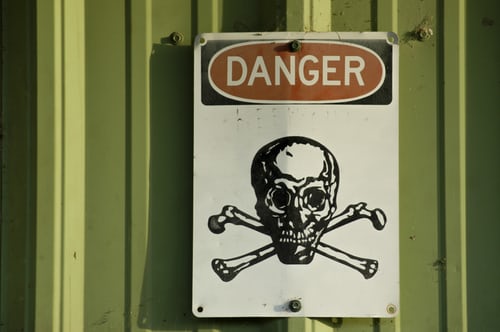(This blog post is based on recent messages given by Parkside Church pastor Alistair Begg.)
How much does the Cross of Christ mean to you and your faith?
Not the trauma Christ experienced on it, but the cross, and what was accomplished there.
Your answer might divulge whether or not you comprehend what happened and the end results.
Your answer might divulge whether or not you are a true Christ follower.
The danger of focusing on the cross’s physical trauma—
When reading about the physical punishment Jesus endured before dragging his cross to Golgotha and being nailed to it to die, there’s no doubt the punishment was brutal and gory. Anyone with a speck of imagination could conjure up the slick sweat, the slashed flesh and exposed muscle, the streaming blood.
For centuries artists have tried to depict it, often with devoted and pained followers kneeling around the crucified Christ in the artwork. The art often projects deep spiritual agony of the devotees, the horrified countenances of the gathering crowd.
They seem stirred by the ugly scene. And often that’s what stirs us too. Often, that’s the only thing that stirs us.
We dive head first into the passion of Christ’s suffering; we feel the profound emotion. We can really get wrapped up in it.
But when we do this, we’re at risk of getting too involved in the passion itself. We identify Christ as the perfect sufferer and extend Him sympathy for that. And we miss what He says to the wailing women and gawkers. (There are always those types that relish watching an execution firsthand.)
Jesus looks at them from the Cross and says, “Don’t weep for me.”
Jesus wants something greater from us than our sympathy.
He wants us to acknowledge exactly what was going on and why it had to happen.
He wants something far greater from us. The Cross demands it.
What does the Calvary Cross demand from us?
Jesus doesn’t want our sympathy. That falls short of what the cross calls us to do.
Jesus wants our love and devotion.
That’s what the Cross, and what was accomplished on it, demands.
The Gospel writers and the epistle writers don’t focus on Jesus’ suffering. They don’t elaborate on the agony. They avoid any vivid descriptions of the suffering Jesus.
What they all emphasize is the sacrifice required for the world’s sins—yours, mine, everyone’s sins since time’s beginning—in order for us to be reconciled to God, have a personal, loving relationship with Him, and have a living hope to enjoy Him for all eternity.
The culminating goal of Christ’s crucifixion is atonement for our sins.
As Pastor Alistair Begg says, that no matter how long we live or how many good deeds we do “We can’t make amends for [our sins]. We can’t establish our own righteousness or our own atonement.”
We can never pay the expected price.
But Jesus could, and He did. It’s what He was born to do.
Make atonement.
Atonement accomplished on the Cross. Proof the debt for our sin was paid. The glorious Resurrection three days later the proof that He was who He claimed to be.
We don’t fall in love with Jesus and follow Him because we feel sympathy for Him. We fall in love with and follow Him because of who He is and what He accomplished on the Cross for us.
It wasn’t His suffering that saves us. It’s His sacrifice.
As Pastor Begg emphasizes, the solution to the world’s dilemmas is solved on that rough, ugly Cross.
At this point in your life, are you still asking Jesus to prove Himself to you?
If you are you’ve missed the sacrificial message of the Cross. The sin-debt-paid-in-full message.
The “It is finished,” message.
You’ve missed salvation.
Jesus has already done all He needed to do to prove Himself. He won’t need to do anything else, even if you ask.
Don’t the good parts of Christianity—the love, the justice, the mercy—save?
The good parts of Christianity—the mercy, the justice, the generosity, the love—are great outward manifestations of a God and Jesus-loving faith. Our faith calls us to do and demonstrate them.
But those good works count for zero toward salvation. No one can do enough good works to get to salvation on his own.
It takes that Cross of Christ to make it to, and over, the finish line.
The danger of removing the Cross as the centerpiece of Scripture—
There’s a church in San Francisco, which I won’t name. It’s a famous church, in a mainline denomination now hotly arguing internally about how they’re going to split over differing issues. A divorce for irreconcilable differences.
In 1967 the lead pastor in this church decided to remove the Cross from the sanctuary. He said he did it “to send a message of inclusion and love and to open his sermons and services to all.”
No doubt he thought he was being loving, kind, thoughtful and inclusive. Open-armed and open-doored. But I think he missed the real message of that Cross he thought others found unappealing, creepy and offensive.
And I’m wondering if in the process He missed Christ.
Or robbed the people who need it most from the salvation message the Cross declares.
To a true believer and follower of Christ, the Cross gives the deepest message of love the world has ever known. Removing it from the centerpiece, and along with it all that was accomplished that earth-shaking day on Golgotha, might prompt condescending sympathy from the masses but a convenient dismissal or avoidance of the truth.
Removing the Cross guts our faith.
We need the Cross because it is the stabilizing structure that supports our faith. The trellis supporting the vine branches. Without the trellis the vines collapse.
Without the Cross, our faith crumbles and disintegrates.
Yes, I know that throughout history the Cross has been used as a symbolic weapon to promote and do unspeakable things, causing many to be repelled by it. And for those horrors, Christians need to apologize and, if possible, make amends.
But those events do not change the facts of salvation truth.
The salvation truth is open to all and everyone who comes to the cross to confess and lay their burdens down there.
Let His breath be in your lungs!
Come to the Cross, and then worship Him!

Invitation—
- Are you moved more by Christ’s suffering than the end result of the sacrifice? If so, turn your attention to what the Cross really means for the world. For you. Ask the Lord to reveal that truth to you. Let Him call you to faith and convince you.
- Have you been trying to earn your way into Heaven with good deeds? Do you believe that’s what gets you there? Realize that you can never do enough good deeds, never measure up to God’s standards and Christ’s righteousness. Lay your good deed list down and kneel at the Cross. Find salvation and righteousness there.
- I encourage—implore—you to stop holding Jesus up as only a good man or a wise prophet, and go to Him in repentance and faith.
Days before His sacrificial death, Jesus wept over Jerusalem because they rejected Him.
Do not let Him weep over you.
NEXT WEEK: I’ll provide you with a couple of resources to learn more about this marvelous story of redemption and hope!
Until then, sing hallelujahs to the King as we celebrate Palm Sunday and walk toward Calvary and the Cross.
Blessings,
Andrea
“Beloved, I pray that you may prosper in all things and be in health, just as your soul prospers.”
Andrea Arthur Owan, M.S., A.T., R., is a health and fitness pro, speaker, award-winning inspirational writer, memoirist, and senior-ordained chaplain (IFOC). She helps people thrive physically, emotionally and spiritually and recover from grief, loss and trauma.















